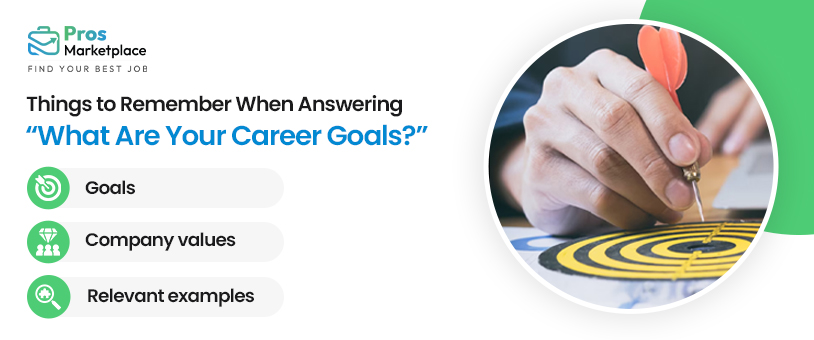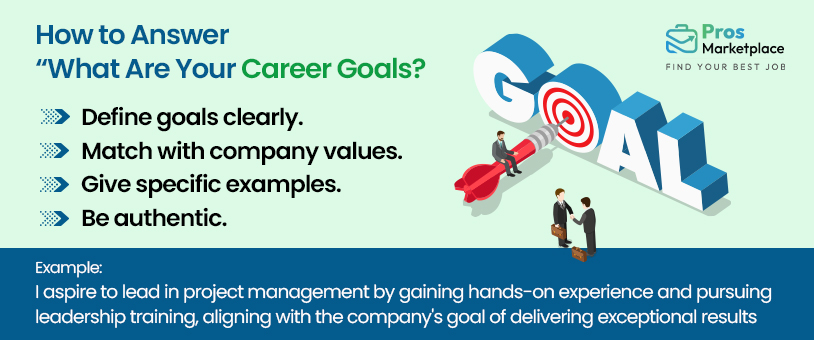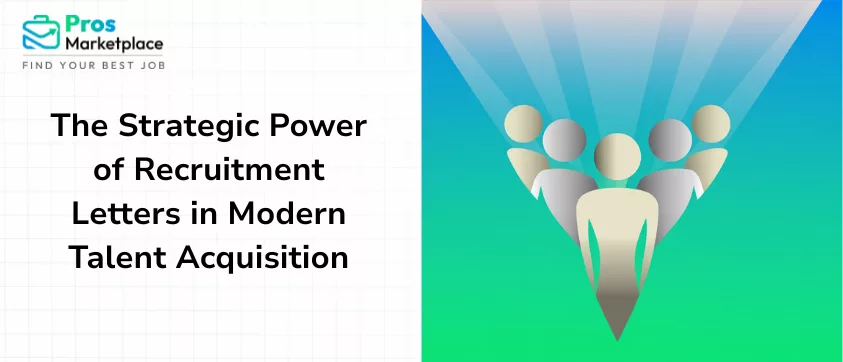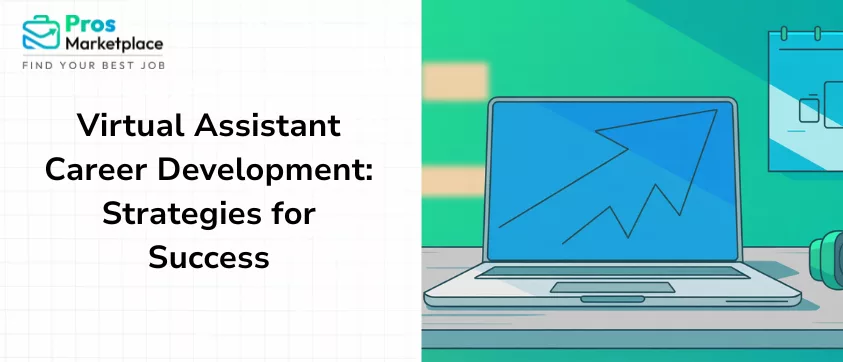Preparing for a job interview is a tedious process. That is why engaging in preparation is a must. While researching for more information to become the perfect candidate, job seekers often look for the commonly asked questions. One of these questions “What are your career goals?”
It is important to answer these questions carefully to ensure you use your skills correctly. Ideally, your answer should effectively demonstrate your passion and commitment to your future career while ensuring your needs are met.
Craft an intriguing answer that puts your skills to use in the right way. Show your genuine interest in the job and your desire to contribute to the organization’s goals. Similarly, ensure that your desire to work is in sync with the company’s values and goals.

How to Answer “What Are Your Career Goals?
When you encounter questions about your career goals, consider this as an opportunity to share your thoughts and vision for the future. Express your needs clearly and confidently, showing that they comply with the company’s sense of responsibility and practices. By doing this, you not only demonstrate your passion and effort but also position yourself as an asset that aligns with the company’s mission and brand plan.
The motive behind the question
The interviewer asks about your career goals to understand your motivation, ability, and suitability for company responsibility. It also helps them decide whether you are a good fit for the job and the organization.
But don’t worry! With some preparation, you can provide the desired answers that show you are passionate about your job and convince your hiring manager that you are a highly motivated candidate for the job and have the ability to improve.
Understand the Question
The interviewer will ask about your career goals to gauge your long-term commitment to the job. They try to understand whether you have a clear understanding of the job and how you want to develop within the organization. They want to ensure that your needs align with the company’s ethical values and goals.
The interviewer tries to uncover your drive and motivation by evaluating your career goals. This question can serve as a litmus test to assess your suitability for the role, especially if the position requires a significant investment in training, retraining potential, or specialized skills.
The interviewer’s might questions will be different but the essence is the same. Here is another statement you will come across:
- Where do you see yourself in five years?
- What is your purpose?
- What do you hope to achieve in your next role?
- How does this job fit into your work schedule?

How to Answer “What Are Your Career Goals? Examples
Starting your career can be exciting but overwhelming, especially when you hear “What is your career goal?” This blog provides an opportunity to share your thoughts and vision for the future. In this section, we’ll explain some good ideas for crafting good answers that will attract interviewers. By understanding the importance of clearly defining and achieving career goals, you can confidently approach interviews and make a lasting impression on employers. State the answer clearly and concisely while explaining your latest work.
For example, if your goal is to advance in leadership:
– My desire to be on a leadership team within the next five years. I’d like to start this journey by shadowing current leaders, gathering input, and taking on more and more responsibility in the department. I am confident that I have the necessary skills and I am committed to acquiring the skills necessary to be successful. –
If your work is less clear, a combination of honesty and ethics is important:
-Even if I do not have a clear plan for using my skills, I desire to offer more balanced advice for treatment. That’s why the [XYZ Company] opportunity resonates with me. It provides me with a platform to deeply understand various aspects of the organization and evaluate their contribution to the overall goals. I am ready to use these experiences to more clearly guide your career path over the next five to ten years.
Alternatively, form your answer based on how your goals align with the company’s interests. Talk about your motivation behind job-specific goals:
– My main goal is to develop my skills in the following areas: make online sales or expand my business so culturally I can expand my intelligence. I believe that developing these skills has not only contributed to my personal development but also directly benefits the company by increasing business and revenue.
For candidates changing jobs, it is important to talk about the change in skills and present the reason behind this change:
I switched to project management because I have a passion for collaboration and project management. My business background has given me great attention to detail and excellent project management skills; these are invaluable qualities in project management. Extensive research has increased my confidence in quickly adapting to the field and making a positive impact.
Therefore, your answer should reflect your passion for the job and reveal your future direction, but the finer details are still evident. The important thing is to share a clear vision for your business and how future roles will follow this path.
Also Read: “Tell Me About Yourself” Question-Answer
More About Preparing Your Answers

It is important to improve your ability to articulate your career goals as you delve into the complexities of interview preparation. In this section, “What is your career goal?” We will examine additional information and tips that will help you better answer the question. By reviewing specific examples, improving your storytelling skills, and aligning your brand with your company’s mission and values, you can effectively improve your communication and become the best candidate.
The truth first; truth is first; Adapt your answers to reflect your true desires rather than trying to make them wishful thinking.
Conduct thorough research to align your goals with the company’s mission and values and emphasize your relationship beyond the demands of the job.
Don’t be confused; Give specific examples of your career goals and how they fit into the job.
Practice saying your answers in different formats to be clear and flexible when speaking.
Conclusion
Want to get started on your next interview? Search for open jobs now and take the time to get to know your career! Performing the interview process with confidence and skill requires careful planning, effective communication, and an understanding of the expert resume services cost to help you present yourself professionally.
In this blog, we explored the art of answering the important question: “What are your career goals? By understanding the importance of accuracy and specificity in goal setting, you will immediately be equipped with the tools to walk the interview with confidence, aligning your answers with designs and the company’s goals. Remember, your career goal is not just a hope, but a path to your career success. By teaching these correctly, you can pave the way for a successful and profitable career that is compatible with your future vision.






